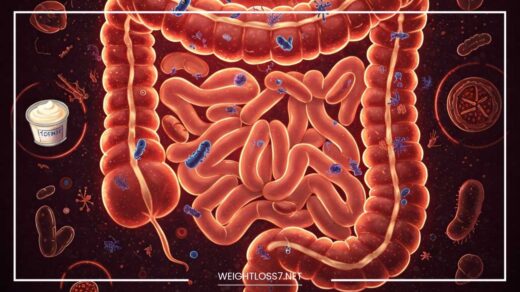B Vitamins: Functions, Sources, Deficiencies, and Health Benefits

B Vitamins
B Vitamins: The Unsung Heroes of Your Health
B vitamins are a group of water-soluble vitamins that are essential for various bodily functions. They play a crucial role in metabolism, energy production, and maintaining overall health.
There are eight distinct B vitamins, each with its unique properties and benefits. In this comprehensive guide, we will explore each B vitamin in detail, including its functions, dietary sources, recommended daily intake, deficiency symptoms, and potential health benefits.
1. Thiamin (Vitamin B1)
Functions: Thiamin, also known as vitamin B1, is vital for the proper functioning of all cells in the body, especially the nerves. It plays a key role in converting food into energy by helping to metabolize carbohydrates.
Dietary Sources:
- Whole grains (such as brown rice and whole wheat)
- Legumes (beans and lentils)
- Nuts and seeds
- Lean pork
- Fortified cereals
Recommended Daily Intake: The recommended daily intake of thiamin for adults is approximately 1.2 milligrams for males and 1.1 milligrams for females.
Deficiency Symptoms: A deficiency in thiamin can lead to a condition known as beriberi, characterized by muscle weakness, fatigue, and nerve damage. Severe cases can result in cardiovascular problems and difficulty walking.
Potential Health Benefits:
- Thiamin supports the proper functioning of the nervous system.
- It aids in the conversion of carbohydrates into energy.
- Thiamin may help improve mood and cognitive function.
2. Riboflavin (Vitamin B2)
Functions: Riboflavin, or vitamin B2, is essential for energy production and the metabolism of fats, drugs, and steroids in the body. It also plays a crucial role in maintaining healthy skin, eyes, and nerve functions.
Dietary Sources:
- Dairy products (milk, cheese, yogurt)
- Lean meats (chicken, turkey, and lean beef)
- Green leafy vegetables (spinach and broccoli)
- Fortified cereals
- Eggs
Recommended Daily Intake: The recommended daily intake of riboflavin for adults is approximately 1.3 milligrams for males and 1.1 milligrams for females.
Deficiency Symptoms: A deficiency in riboflavin can lead to a condition called ariboflavinosis, which may cause sore throat, redness and swelling of the lining of the mouth and throat, cracks or sores on the outsides of the lips (cheilosis), and at the corners of the mouth (angular stomatitis), inflammation and redness of the tongue (magenta tongue), and a moist, scaly skin inflammation (seborrheic dermatitis).
Potential Health Benefits:
- Riboflavin is essential for healthy skin, eyes, and nerve functions.
- It contributes to energy production in the body.
- Riboflavin may help prevent migraines.
3. Niacin (Vitamin B3)
Functions: Niacin, also known as vitamin B3, is involved in over fifty enzymatic reactions in the body. It plays a crucial role in DNA repair, detoxifying chemicals, and the production of sex hormones. Niacin is also vital for converting food into energy.
Dietary Sources:
- Meat (particularly poultry and fish)
- Nuts and seeds
- Legumes
- Whole grains
- Fortified cereals
Recommended Daily Intake: The recommended daily intake of niacin for adults is approximately 16 milligrams for males and 14 milligrams for females.
Deficiency Symptoms: A deficiency in niacin can lead to a condition known as pellagra, characterized by the “4 Ds”: dermatitis (skin inflammation), diarrhea, dementia (mental confusion), and death if left untreated.
Potential Health Benefits:
- Niacin supports DNA repair and hormone production.
- It aids in the metabolism of carbohydrates, fats, and proteins.
- Niacin may help lower cholesterol levels and reduce the risk of cardiovascular disease.
4. Pantothenic Acid (Vitamin B5)
Functions: Pantothenic acid, or vitamin B5, works in conjunction with several other B vitamins to facilitate essential processes in the body.
It is crucial for breaking down fats, proteins, and carbohydrates into energy. Additionally, vitamin B5 is needed to form vitamin D, various hormones, and red blood cells.
Dietary Sources:
- Organ meats (liver and kidney)
- Lean meats
- Whole grains
- Legumes
- Avocado
Recommended Daily Intake: The recommended daily intake of pantothenic acid for adults is approximately 5 milligrams.
Deficiency Symptoms: Pantothenic acid deficiency is rare but may lead to symptoms such as fatigue, weakness, and gastrointestinal disturbances.
Potential Health Benefits:
- Pantothenic acid supports energy metabolism.
- It plays a role in hormone and red blood cell production.
- Vitamin B5 may contribute to healthy skin and hair.
5. Pyridoxine (Vitamin B6)
Functions: Pyridoxine, or vitamin B6, is responsible for redistributing amino acids to create over five thousand proteins needed by the body.
It also plays a vital role in the formation of various enzymes that are involved in essential biochemical reactions.
Dietary Sources:
- Poultry (chicken and turkey)
- Fish (such as salmon and tuna)
- Bananas
- Potatoes
- Chickpeas
Recommended Daily Intake: The recommended daily intake of vitamin B6 for adults is approximately 1.3 to 2 milligrams, depending on age and gender.
Deficiency Symptoms: A deficiency in vitamin B6 may lead to symptoms such as muscle weakness, nervousness, irritability, and skin changes.
Potential Health Benefits:
- Vitamin B6 is essential for protein synthesis.
- It supports the formation of enzymes involved in various bodily functions.
- Pyridoxine may help alleviate symptoms of premenstrual syndrome (PMS).
6. Biotin (Vitamin B7)
Functions: Biotin, also known as vitamin B7, is involved in a wide range of processes within the body. It plays a crucial role in the breakdown of fats, carbohydrates, and proteins into forms of energy that the body can use.
Dietary Sources:
- Eggs
- Nuts and seeds
- Liver
- Sweet potatoes
- Spinach
Recommended Daily Intake: The recommended daily intake of biotin for adults is approximately 30 micrograms (µg).
Deficiency Symptoms: Biotin deficiency is rare but may result in symptoms such as hair loss, skin rash, and neurological symptoms.
Potential Health Benefits:
- Biotin supports the metabolism of macronutrients.
- It may contribute to healthy skin, hair, and nails.
- Biotin supplements are sometimes used for managing certain medical conditions, although their effectiveness varies.
7. Folic Acid (Vitamin B9)
Functions: Folic acid, or vitamin B9, is essential for cell growth and division, making it especially important during pregnancy.
It is also involved in the synthesis of DNA and RNA and contributes to the production of natural chemicals that control appetite, mood, and sleep quality.
Additionally, folic acid helps lower the risk of heart attacks or strokes by keeping arteries open.
Dietary Sources:
- Leafy greens (such as spinach and kale)
- Legumes (beans and lentils)
- Fortified cereals
- Citrus fruits (oranges and grapefruits)
- Avocado
Recommended Daily Intake: The recommended daily intake of folic acid for adults is approximately 400 micrograms (µg).
Deficiency Symptoms: Folic acid deficiency can lead to megaloblastic anemia, which results in fatigue, weakness, and pale skin. In pregnant women, a deficiency can lead to neural tube defects in the developing fetus.
Potential Health Benefits:
- Folic acid supports cell growth and division.
- It aids in the synthesis of DNA and RNA.
- Folic acid supplementation is crucial during pregnancy to prevent neural tube defects.
8. Cobalamin (Vitamin B12)
Functions: Cobalamin, or vitamin B12, is important for the process of converting carbohydrates, proteins, and fats into energy.
It is also vital for the formation of the protective covering of nerve cells (myelin sheath), maintaining healthy red blood cells, and helping to prevent heart disease.
Dietary Sources:
- Meat (especially liver and kidney)
- Fish (such as salmon and trout)
- Eggs
- Dairy products
- Fortified foods (such as cereals and plant-based milk alternatives)
Recommended Daily Intake: The recommended daily intake of vitamin B12 for adults is approximately 2.4 micrograms (µg).
Deficiency Symptoms: A deficiency in vitamin B12 can lead to anemia, fatigue, weakness, neurological problems (tingling in the hands and feet), and difficulty walking.
Potential Health Benefits:
- Vitamin B12 supports energy metabolism.
- It is crucial for nerve function and the formation of red blood cells.
- Vitamin B12 may help reduce the risk of heart disease, particularly in conjunction with other B vitamins.
Final Thoughts
In summary, B vitamins are a diverse group of essential nutrients that play vital roles in numerous biochemical processes within the body.
They are necessary for energy metabolism, the formation of DNA and RNA, nerve function, and overall health. Maintaining an adequate intake of B vitamins through a balanced diet or supplementation when necessary is crucial for preventing deficiency-related health issues and promoting optimal well-being.
It’s important to note that individual dietary needs can vary based on age, gender, activity level, and specific health conditions.
Therefore, consulting with a healthcare professional or registered dietitian is advisable to determine your specific vitamin B requirements and ensure you are meeting them through your diet or supplementation if needed.
Incorporating a wide variety of foods rich in B vitamins into your diet, such as whole grains, lean proteins, fruits, and vegetables, can help you maintain good health and ensure you receive the necessary nutrients to support your body’s functions.
Additionally, for those with specific dietary restrictions or medical conditions that may hinder the absorption of B vitamins, supplements may be recommended to bridge any nutritional gaps.
Ultimately, a balanced approach to nutrition and a well-rounded diet are essential for reaping the full benefits of these essential B vitamins.

















